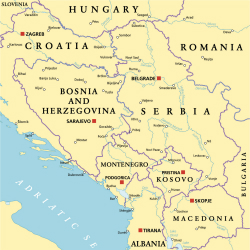Improving research capabilities in Western Balkan countries
The EU has been focusing on and consolidating efforts towards stimulating and promoting innovation, largely through its Innovation Union. The EU strategy geared to creating an innovation-friendly environment, the Innovation Union promises to bring growth and jobs to Europe. The WEB-INUNION(opens in new window) (Bringing Western Balkans closer to Innovation Union: An example of EURAXESS regional collaboration) project has brought the Western Balkan countries closer to the Innovation Union reaching its overall aim of creating an innovation-friendly and research-driven environment across the EU. The project promoted attractive working and research conditions. In particular, this was achieved by highlighting such an environment conditions within the European Charter for Researchers and the Code of Conduct (C&C) for the recruitment of researchers. A national Human Resources Strategy for Researchers group was set up in Croatia through which institutions could discuss the C&C and evaluate human resource strategy. Almost all eight participating countries saw an increase in their C&C signatories and/or an increase in the research institutions with the Commission’s "HR Excellence in Research" logo. WEB-INUNION also analysed obstacles to researcher mobility. Promotion and explanation of the benefits of the EURAXESS jobs portal(opens in new window) and the unbiased opportunities on offer was an integral part. A survey was conducted, the database was updated, and there was a national legislation analysis as well to better understand current obstacles. The national reports and the input of policy makers and consulting groups resulted in valuable recommendations for how each country can alleviate such obstacles. The national reports were ultimately condensed into the Synthesis Report which offers a succinct overview of the entire region. Understanding diaspora researchers and means of attracting them to their origin country was another focal point of the project. A database was constructed, now including 924 individuals from 34 different countries. A survey, although response rates varied, also elucidated the decision-making processes and motivations of researchers. The results revealed similarities between countries and national reports provided recommendations that will hopefully greatly improve national research production. The awareness raised of important changes to researcher enticement, and the connections made between research institutions and policy makers in these areas, has laid a more secure and encouraging research foundation. Overall, these innovation efforts in the Western Balkan countries were able to greatly enhance their ability to achieve the Innovation Commitments and attain a greater level of research quality and contribution in general.



